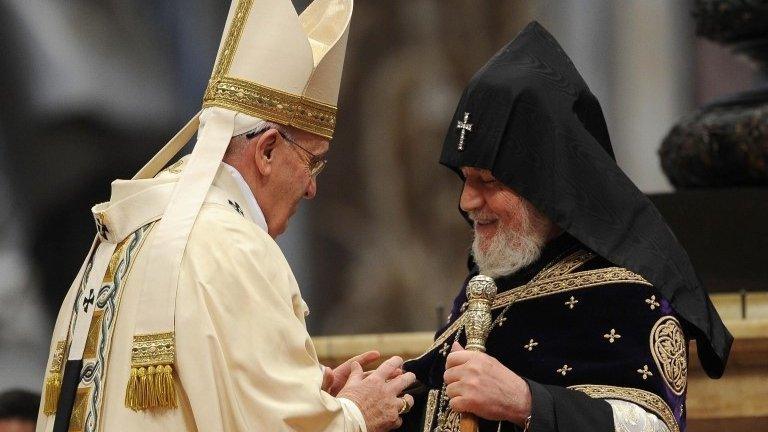Armenian 'genocide' vote ignites press
- Published
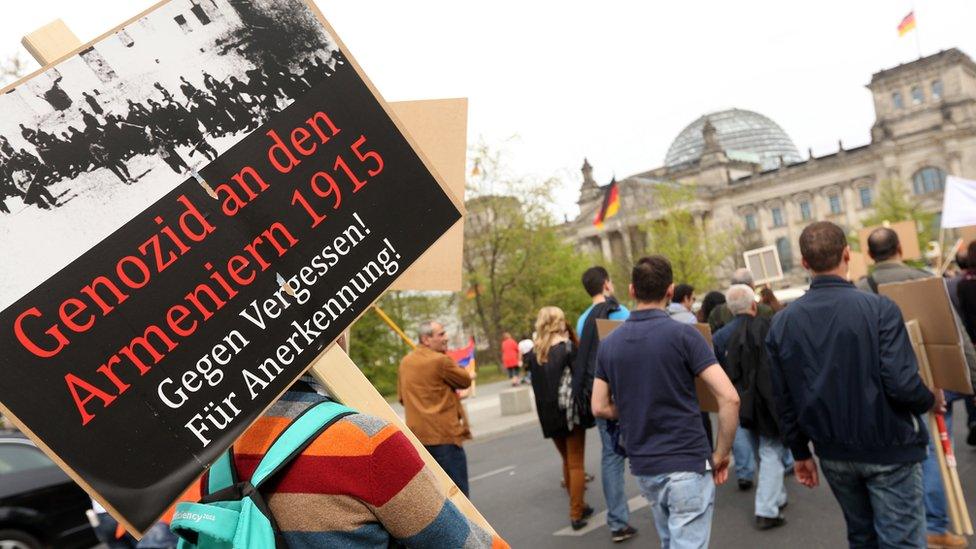
Members of the Armenian community in Berlin demonstrate on the 100th Anniversary of Armenian Genocide in April 2015
The German Bundestag vote recognising the mass killing of Armenians by Ottoman Turkey in World War One as an act of "genocide" is the top story for the online editions of German newspapers, and attracts considerable attention in the Turkish and Armenian media too.
'Doing the right thing'
German papers approve of the vote, saying it went ahead despite strong criticism from the Turkish government.
In a commentary ahead of the vote, news magazine Der Spiegel, external said it would be "the right thing" to pass the resolution.
But it also understood the decision of leading politicians, including Chancellor Angela Merkel, not to attend the vote for fear of endangering the controversial EU-Turkey migrant deal.
Die Welt's, external Turkey correspondent Deniz Yucel is less sympathetic to the political leaders' predicament, dubbing their absence from the vote "embarrassing".
He describes the Turkish nationalist attitude to the Armenian massacres as "we didn't kill them, but we would do it again", and says only outside pressure like the Bundestag vote can bring "what has been repressed to the surface".
Volker Kauder, the parliamentary leader of Chancellor Merkel's Christian Democrats, urges MPs not to "be silent", despite warnings from Turkey.
"At a time of growing intolerance, naming historic crimes can help prevent them in future," he writes in the Frankfurter Allgmeine Zeitung, external.
He says the resolution seeks Armenian-Turkish reconciliation, and is not an "accusation" against the people of Turkey.
Sueddeutsche Zeitung, external says the vote has caused unease in Germany's large Turkish community.
"I feel that 'murderer' is being stamped on the foreheads of us German Turks," Frankfurt law student Elmaci Hilal tells the paper.
"I'm afraid the atmosphere between ethnic Turks and other Germans will change - it's been good so far."
Left-wing Tageszeitung, external backs the resolution, but says Germany must also come to terms with its own past and recognise the 1904-8 killing of Herero and Nama people in Namibia - a German colony at the time - as genocide.
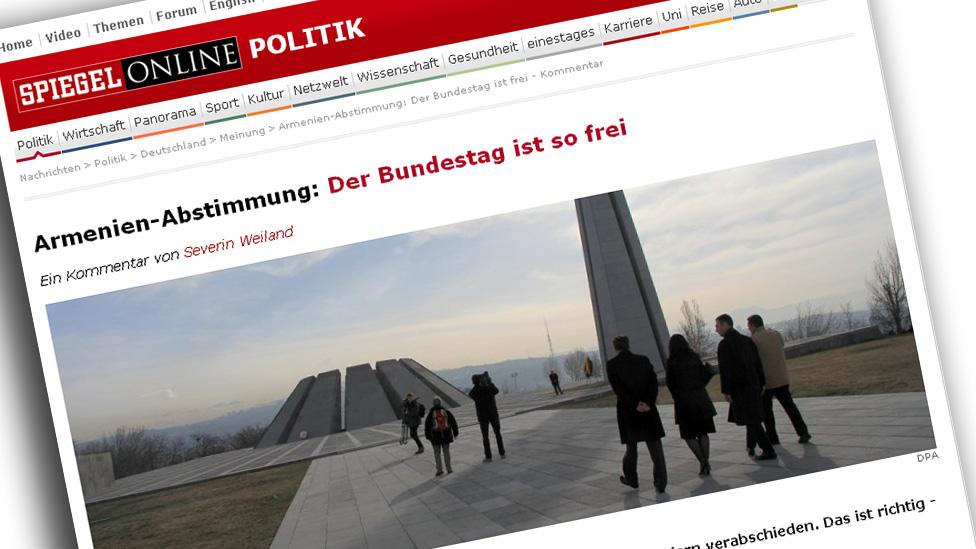
Der Spiegel urges Bundestag to do "the right thing"
'Scandalous decision'
Turkey's pro-government Sabah, external dubs the vote a "scandalous decision", registers official Turkish "warnings" about the bill, and notes the absence of Chancellor Markel and other top ministers from the debate.
Opposition Cumhuriyet, external is less combative, saying that "all eyes are now on Ankara" to see how the Turkish government will respond. The paper dismisses fears of a collapse of the EU migrant deal, as it is a "separate matter".
The Armenian Turkish newspaper Agos, external compares Turkish Prime Minister Binali Yildirim's reaction unfavourably with the Bundestag's expression of "sorrow" at the failure of the German military mission to the Ottoman Empire to stop the killings in 1915, when the two countries were First World War allies.
Prime Minister Yildirim said the killings were "the sort of ordinary thing that happens in times of war, and could have happened in any country".
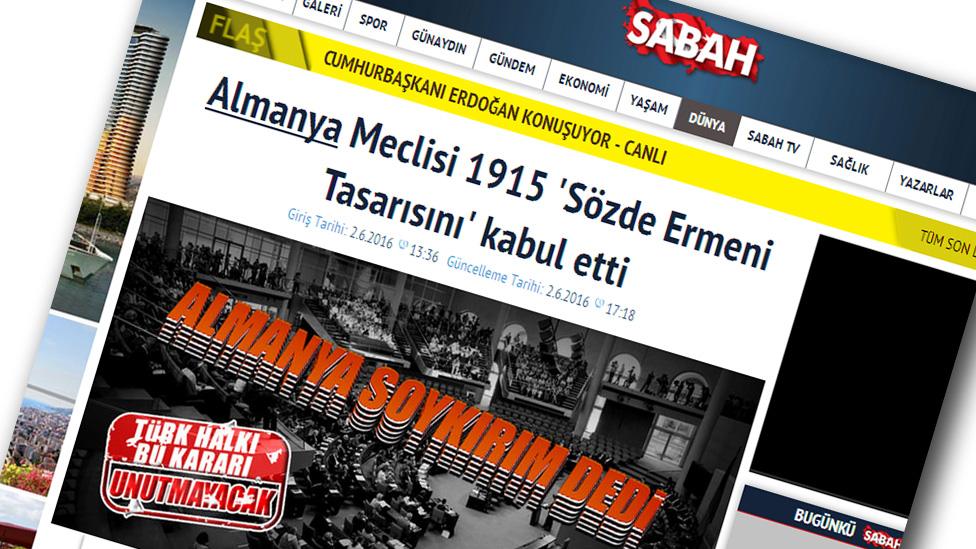
Turkey's Sabah dubbed the vote "scandalous"
'Armenia's turn'
The media in Armenia followed the vote avidly. It was aired live with a simultaneous translation on pro-government Ararat TV, as well as on some major news agencies, including official Armenpress and 1in.am, external.
Lragir, external newspaper is typical of media reaction in seeing this as "Armenia's turn" to capitalise on the German resolution and press for similar votes in other countries, including Russia.
BBC Monitoring, external reports and analyses news from TV, radio, web and print media around the world. You can follow BBC Monitoring on Twitter , externaland Facebook, external.
- Published24 April 2021
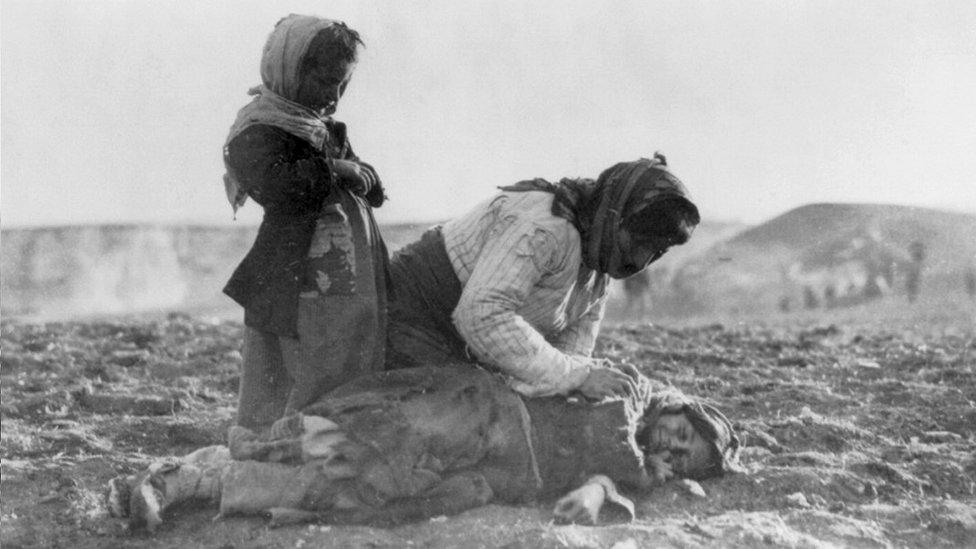
- Published17 May 2016

- Published23 April 2015
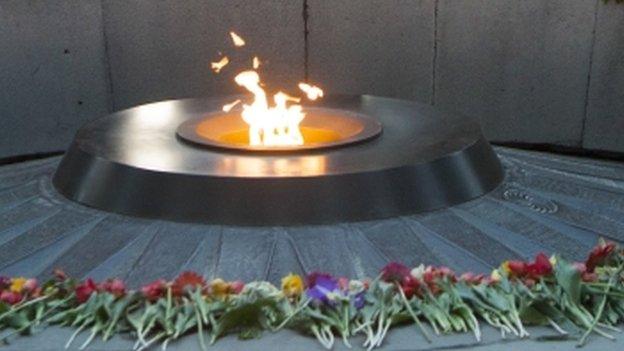
- Published12 April 2015
